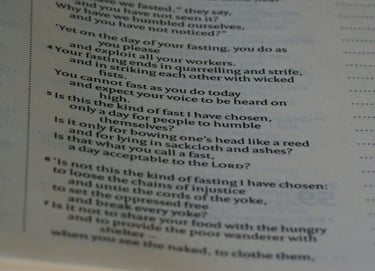The Dichotomy of Charity: Jesus and Political Discourse
Throughout the New Testament, Jesus emphasizes the importance of compassion and charity, particularly towards the poor.
RELIGIONPOLITICS


The Teaching of Jesus on Feeding the Poor
Throughout the New Testament, Jesus emphasizes the importance of compassion and charity, particularly towards the poor. His teachings highlight the moral obligation to help those in need, establishing a humanitarian framework that transcends mere charity. Feeding the hungry is not just a physical act but a reflection of one's Christian faith and values. Jesus' message resonates with the core of Christianity: love, compassion, and selflessness.
The Political Narrative around Poverty Alleviation
In contrast, when politicians discuss feeding the poor, the message often receives a different label—socialism. This term carries a myriad of connotations, many of which evoke apprehension and division among the populace. While the intention behind both sermons—Jesus' and the politician's—is indeed to address hunger and poverty, their framing is profoundly distinct. Politicians may use the notion of feeding the poor to drive policy changes and elicit public support, but this can unexpectedly lead to polarized reactions from constituents.
The Underlying Messages: Charity vs. Policy
The divergence in perception between religious teachings and political rhetoric highlights a complicated relationship with social responsibility. While Christianity calls for personal acts of charity, politicians often frame solutions to poverty in terms of systemic change. This reveals an essential truth; feeding the poor remains a biblical commandment, regardless of who is advocating for it and the methods being proposed. Ultimately, understanding this dichotomy is crucial for bridging ideological divides and fostering a united front in the fight against poverty.
Ai Generated Image